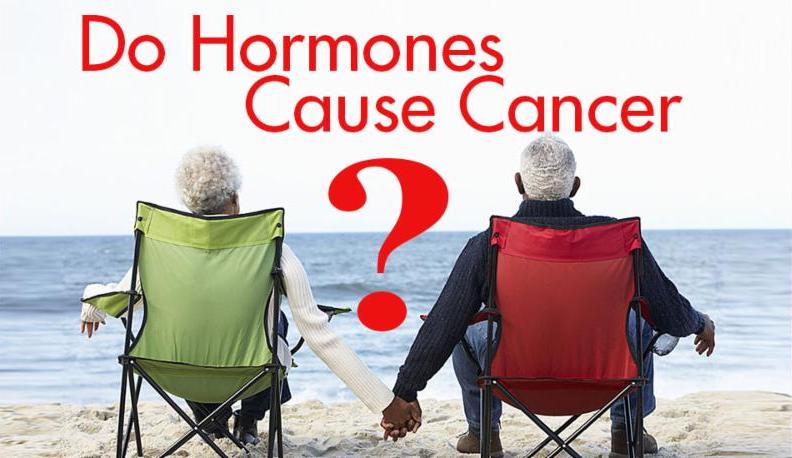This is a question we regularly hear from patients when we discuss their symptoms and hormone replacement options. Often people are led to believe hormone replacement of any kind will increase their chances of developing cancer later. We have seen that this simply isn’t the case with patients treated using bio-identical hormones.
A large study of 20,000 men showed no increase in prostate cancer in those men treated with testosterone. But testosterone supports the growth of prostate cancer, and a main treatment of prostate cancer is to give agents that block testosterone production and activity- Lupron, Proscar, Casodex, Xgeva.
After a period of years prostate cancer is no longer controlled by blocking testosterone. Experiments are going on to see if alternating testosterone blockade with testosterone supplementation may prevent resistant cancer cells from growing.
In women, data on breast cancer and hormone therapy are conflicting. After menopause, when hormone levels are very low, the incidence of breast cancer in women goes up, not down. It continues to rise until the age of 85, even though estrogen levels are extremely low. Therefore other factors must be involved- impaired immune function, poor diet, overweight, diabetes, lack of exercise, stress, heredity, etc.
The Women’s Health Initiative, a major study conducted in 2002, showed a slight increase in breast cancer in women given Premarin and Provera. These preparations are both non-human identical hormones. Provera the synthetic progesterone, has been shown in some studies to increase incidence of breast cancer. We never use it at IPM.
A 10- year follow-up study on the Women’s Health Initiative, in women with hysterectomy and thus on estrogen only and no progesterone, showed no increase of breast cancer in those women. This data shows estrogens are not to blame.
Testosterone therapy in menopausal women has been shown to reduce breast cancer incidence. Compared with placebo, women on testosterone only or testosterone plus estrogen, had half the incidence of breast cancer as women getting no hormones. A 90-year-old woman had regression of breast cancer when she was treated with testosterone.
What should women do? Use bio-identical hormones only.
Follow a lifestyle that reduces breast cancer risk: exercise, avoidance of overweight, reduce alcohol consumption (not more than a drink a day) and eat cruciferous vegetables that reduce breast cancer risk- such as Brussels sprouts, broccoli, kale, cabbage.
See how you feel with hormones. Remember that hormones improve bone density, mood, sleep, skin quality, sense of well-being, libido, vaginal health, energy, cognitive function, and may lower risk of heart disease and stroke. They may also lower risk of dementia.
-Allan Sosin, MD


